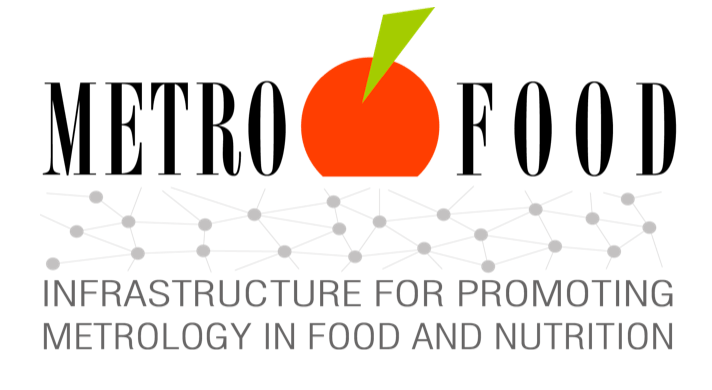Strengthening of the Italian Research Infrastructure for Metrology and Open Access Data in support to the Agrifood
Webinar METROFOOD-IT: Focus on Food Safety
Food safety was at the forefront of the METROFOOD-IT webinars held on February 27th and 28th, with a significant participation of mostly young researchers and PhD students in the Food Science sector. The first session on February 27th was led by Professor Francesca De Filippis from the University of Naples Federico II, discussing the topic "Role of the microbiome in food quality". During the session, the speaker focused on the microbiome of foods, which can be seen as a "fingerprint" selected by the microenvironment of different production areas, and could be used to develop models for traceability. Considering that the microbiome of foods is also involved in the typical sensory profile, several examples were provided regarding commonly consumed foods such as wine, buffalo mozzarella, and other cheeses.
The presentation then shifted to metagenomic techniques, a molecular technique based on genome analysis, which can be useful in understanding the functional potential of the microbiome. This ensures a significant contribution to identifying organisms harmful to food safety and improving the quality of certain foods. The advantages of metagenomics highlighted include the absence of PCR selection, the possibility of describing the entire microbial population (Bacteria, Fungi, Archaea), and the identification of different genes and strains. However, there are also some disadvantages, such as the higher cost, more complex data analysis, and computational requirements.
The role of non-cultivable bacteria
The second webinar of February 27th focused on a related topic titled "Microbiological safety of foods: role of viable but non-cultivable (VBNC) bacteria", presented by researchers Annamaria Bevivino and Luciana Di Gregori from ENEA. Initially, there was discussion about microorganisms, which are an integral part of our food system and are present in almost every phase of food production. Understanding the types of microorganisms associated with specific foods is essential for developing preventive measures and preventing foodborne illnesses. Specifically, the focus was on the microbiological safety of foods, which includes all activities aimed at identifying and characterizing human-pathogenic microorganisms. The webinar emphasized that the number and types of microorganisms present in a food can be used to judge its quality and microbiological safety. The discussion also covered VBNC bacteria, which can pose a considerable (and hidden) risk to food safety. Flow cytometry and flow cell sorting techniques were highlighted as essential for studying and controlling microbial contamination in foods, contributing to their safety and quality.
Applications of gamma radiation
Another webinar on February 28th, titled "Applications of gamma radiation in the agri-food field", was presented by researchers Alessia Cemmi and Jessica Scifo from ENEA. The live session frequently referred to the experience of the Calliope ENEA facility at the Casaccia Research Center, specializing in these applications. The treatment of foods with ionizing radiation was discussed, widely used to preserve the hygienic quality of foods and extend their shelf life. The primary objective is to ensure greater food safety and quality for products to be sold. Additionally, gamma radiation applications such as the Sterile Insect Technique (SIT) for combating harmful insects and the use of gamma radiation for genetic improvement through Mutation Breeding were discussed.
Upcoming METROFOOD-IT events
The cycle of webinars organized by METROFOOD-IT continues, with two webinars scheduled for Tuesday, March 19th. Registration for these events is open until 3:00 PM on March 18th. Details and registration links can be found here Registrazione ai webinar METROFOOD-IT
Presentazioni disponibili
Role of the microbiome in food quality
Prof. Francesca De Filippis - University of Naples Federico II
e-mail:
Microbiological safety of foods: analysis methods and the role of viable but non-cultivable (VBNC) bacteria
Dr.ssa Annamaria Bevivino & Dr.ssa Luciana Di Gregorio - ENEA.
e-mail: -
Applications of gamma radiation in the agri-food field
Dr.ssa Alessia Cemmi & Dr.ssa Jessica Scifo - ENEA.
e-mail: -





